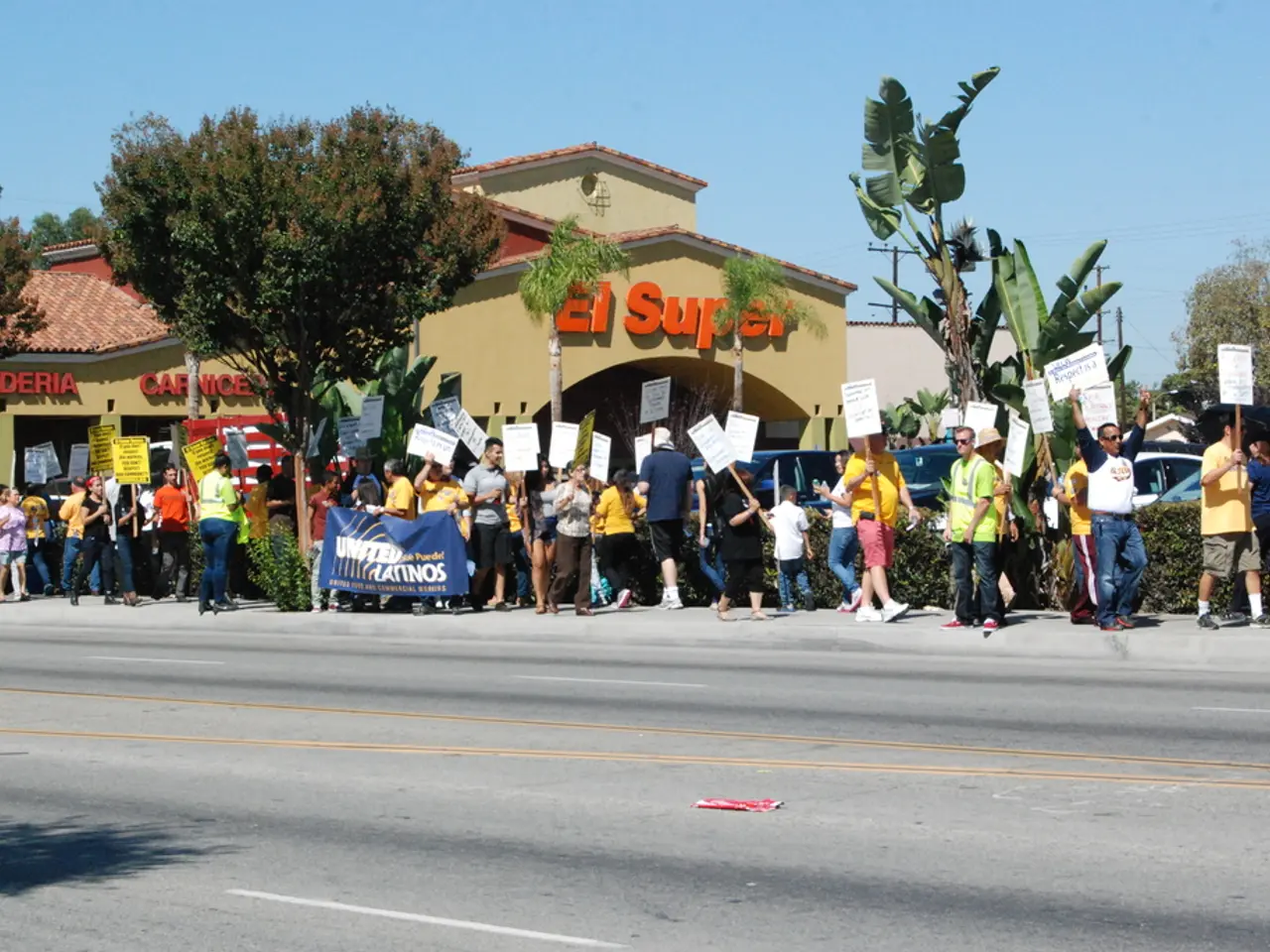Citizens' Questions Posed to Parliamentary Candidates in Düsseldorf-Süd by Voters
In a lively panel discussion at Düsseldorf's Kulturhaus Süd, six Bundestag candidates shared their political positions on a range of pressing issues. The event, which attracted nearly 200 citizens, aimed to shed light on the candidates' perspectives, particularly regarding children's rights, education, migration, climate protection, and financing necessary investments.
The discussion kicked off with a question from Hanifa, a member of the Garather Children's Parliament, about each candidate's plans for children. All candidates agreed that uniform standards for the Abitur should be a goal to ensure the comparability of certificates.
Hannes Draeger, representing The Left, called for more money for schools and kindergartens and less for weapons, with the goal of combating child poverty. Adis Selimi (SPD) praised the engagement of the Children's Parliament and emphasized the need for the federal government to provide financial means to better equip schools. Sara Nanni (Alliance 90/The Greens) emphasized the importance of good equipment for sports and leisure facilities, while Frances Noltekuhlemann from VOLT spoke in favor of changing the Dublin procedure and more integration.
The debate on financing necessary investments and maintaining debt-free status caused disagreement among the parties. Dr. Lida Azarnoosh (FDP) views debt-free status as a high priority, believing an economic upswing will resolve budget problems. Johannes Winkel (CDU) stated that the problem is not income but expenditure. Adis Selimi (SPD) advocates for stronger taxation of the rich, the introduction of a wealth tax, and the reform of inheritance tax to finance investments.
The discussion on migration led to objections from Hannes Draeger, who criticized the automatic scapegoating of migrants. Frances Noltekuhlemann (VOLT) also emphasized the need for more integration, such as the granting of work permits. Sara Nanni (Greens) accused the CDU of breaking their word by introducing a draft without consultation, knowing that it would only be accepted with the votes of the AfD, which was met with applause from the majority in the hall.
The event took an energetic turn when the topic of climate protection was brought up. Johannes Winkel (CDU) attributed the achievement of climate goals to the current deindustrialization and the shutdown of nuclear power plants, which was met with disagreement from Adis Selimi (SPD) and many attendees in the hall. Sara Nanni (Greens) also emphasized the importance of good coordination of authorities and their equipment in maintaining the security situation.
Momo, a student, brought up the topic of pensions, noting that older people collect bottles as a source of income. The FDP aims for a combination of pay-as-you-go and capital-funded equity pension.
The panel discussion, which lasted for over two hours, provided a valuable opportunity for citizens to engage with the candidates and gain insights into their political positions. The event concluded with a call for active participation in the upcoming elections to shape the future of Düsseldorf and Germany.
Read also:
- Alabama Senate examination delves into emerging treatments for PTSD, addressing the escalating veteran suicide predicament
- Discourse at Nufam 2025: Truck Drivers Utilize Discussion Areas, Debate and Initiate Actions
- U.S. Visit of Modi Stirs Controversy: Little Substance Acknowledged
- Potential Democrats Standing Firm on Possible Presidential Bids in 2028








